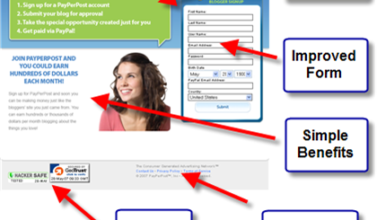
For the most part, Online Reputation Management (ORM) is easy to define. It means taking control of the online conversation between your business and potential customers. Online reputation management is becoming increasingly important for businesses, so the way you handle yours is paramount.
The techniques and strategies behind it ensure that people find the right information when they look for you online. Effective online reputation management will help create a balance and counter misleading trends allowing you to be prepared for anything. We’ll show you a few simple ways to improve your online reputation including Google Alerts. But first, let’s take a look at why feedback (good or bad) is so important.
Managing Feedback and Online Reputation Management (ORM)
People give feedback in many different ways and when handled incorrectly could harm your business. Make no mistake, new and existing customers rely heavily on online reviews from other customers when they buy products. For that very reason, it is essential to maximise positive reviews without ignoring negative ones altogether. You need to handle negative reviews in such a way that it won’t put others off.
Establishing and maintaining a good reputation will not only increase sales but will help turn loyal customers into online advocates. Remember, sales and marketing don’t end with the purchase of an item. Digital marketing is an ongoing process, a wheel that keeps on turning if you like. Remarks, comments or complaints remain online for a very, very long time so think carefully before doing anything. Even if you think your business flies under the radar or is low-tech, chances are there is a fair amount of information about you online and people will see it.
Learn how to manage your business reputation and improve customer sentiment when it comes to your brand, products and services.
-
Be Proactive
Instead of waiting for people to post reviews, set up a review requesting programme. More often than not, customers who leave uninvited reviews do so because they are unhappy about something. At the same time, satisfied customers post reviews as they enjoy the good service you provided them. Requesting reviews will prompt and encourage satisfied customers to leave feedback. This will help improve your average star ratings and give prospective buyers a complete and favourable overview of your brand.
As the saying goes, ‘Strike while the iron is hot’ and ask for a review right after purchase! Make sure it’s really simple for customers to leave reviews using streamlined, graphic-driven templates and mobile review requests. Statistics show that the best time to send review requests is during the morning and midway through the week.
-
Constantly Monitor Reviews
Your customer reviews will contain important insights, so make sure your customer service staff monitor them continuously. Implement protocols so that staff members know exactly how to respond to positive and negative feedback. Your customers will appreciate the interaction, especially if you are able to put something right for them. This will certainly give your brand a real boost. Reviews can also highlight areas of your business that you may wish to change. For example, your delivery service constantly produces complaints or if a particular product has not been well-received.
-
How To Use Google Alerts For Effective Online Reputation Management (ORM)
One way to monitor online reputation is through keyword mentions on an app such as Google Alerts. Simply sign up for a Google account (if you haven’t already) using a specified email address to receive alerts. From there, type the keywords you want to monitor into the white box at the top starting with, “Create an alert about …”
These keywords or phrases are terms that you want to be alerted about as soon as Google finds it. They can appear anywhere form blogs, news articles, social media platforms to public forums. It’s absolutely essential that you at least create alerts for your name, business name, email address(es) and domain name(s).
Now you can customise your alerts by clicking on “Show options”. There are different options in terms of how often you want to receive alerts from Google when they find your keyword. You can choose to get them as they happen, once a day, or once a week. Depending on how important your particular search term is, you may want to choose “As-it-happens”. This way you can keep ahead of any developments that could potentially jeapordise your reputation. Here is some additional info and instructions on how to use Google Alerts.
-
Maximise Social Media Usage
Social media sites such as Facebook and Twitter offer customers the chance to provide feedback very publicly. Due to the nature of social media, make sure your approach is as interactive as possible. Remember that you can respond to any comments but the way you do could really impact your business. You will be able to showcase positive feedback and clearly show concern when you get something wrong. Most customers appreciate and value honesty and full transparency.
Some companies have even used feedback to rename their products or to drive their ad campaigns. Some great examples include Sainsbury’s, Starbuck’s and Andrex. Always be friendly and inclusive, non-judgmental and create a welcoming community for people to get to know your brand.
-
Update Your Information
When customers search for a business on Google, like a beauty salon or a local delicatessen, they often want something specific. Whether they’re looking at a particular area or at a specific time, what they do next is even more important – checking for online reviews.
As stated by reviewtrackers.com, “63.6 percent of consumers say they are likely to check online reviews on Google before visiting a business — more than any other review site”. If your business is listed multiple times on Google, there is a chance that some of the information is missing or incorrect. As a result of incorrect information, you unknowingly eliminate potential customers from the search results.
Make sure your customer service team is on top of this. You should be able to update listings fairly quickly and easily providing you are aware of any gaps. At the very least, always ensure that the business name, address, website address, contact details and operating hours are correct. For more insights on the importance of online reviews, read this article, “What an Online Review Is Really Worth?”
If you need help or advice in managing your online reputation, we’d be happy to help. The team at WSI-eMarketing will help you implement the right strategies to raise the profile of your brand. In addition, we will work together on longer-term options to give your business the edge for many years to come. Get in touch with us today to find out more about online reputation management (ORM)!
Related Post
What’s the single...
Adam Vincenzini from Comms Corner recently posted a very good article which I think goes...
- January 25, 2011
- By Rob Thomas
- Blogging
Effective Facebook Marketing...
With over 600 million users, Facebook represents the single most connected platform on...
- March 1, 2011
- By Nadine Thomas
- Latest Online Trends
Monitor, Influence and Lead...
Get Actively Involved in the Outcome of Search Results Don’t take negative publicity...
- April 28, 2011
- By Rob Thomas
- ORM
Free Online Reputation...
Listen to What’s Being Said About You Online (Free online reputation monitoring...
- May 5, 2011
- By Rob Thomas
- ORM
How To Drive Sales With...
Landing pages have long been the primary tool of the web-savvy marketer. Whether the...
- June 12, 2011
- By Nadine Thomas
- e-Commerce
Content Sharing Via Social...
Target marketing to meet your business goals Is your business using social media channels...
- June 15, 2011
- By Nadine Thomas
- Digital Marketing











Leave a Comments